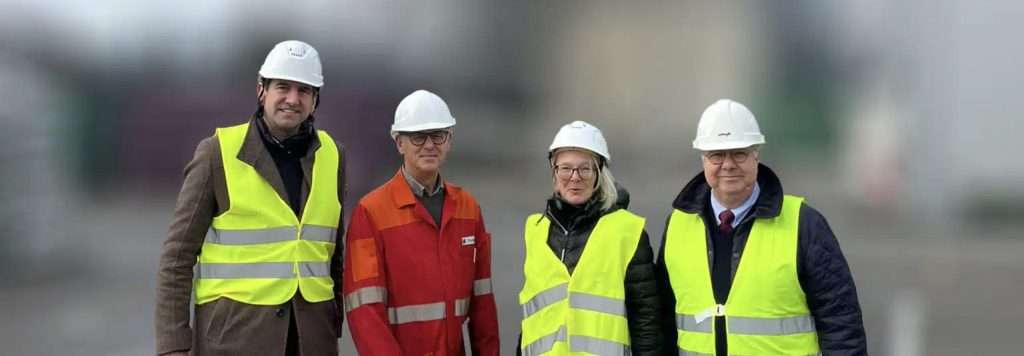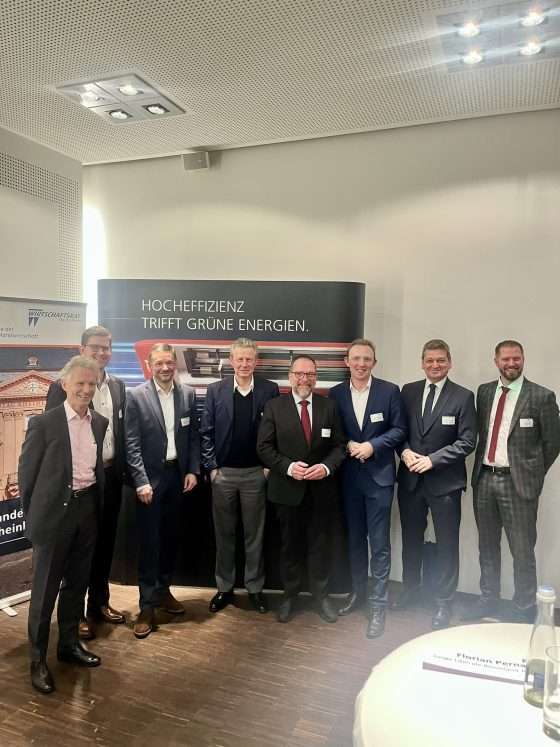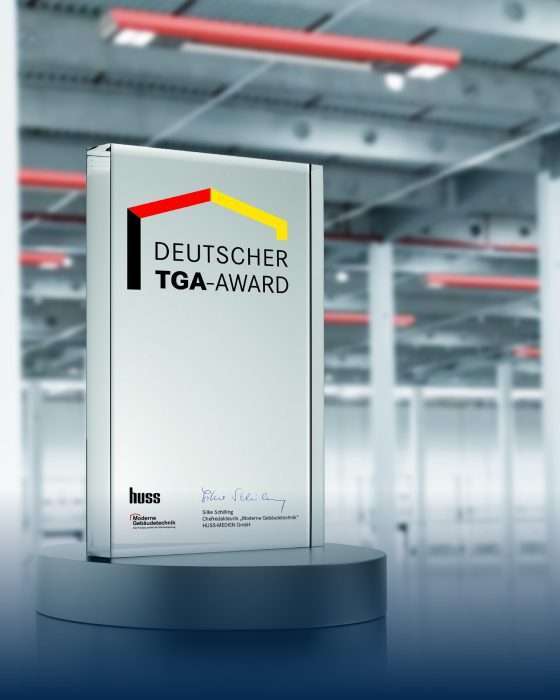"The question is: How do we preserve the industries and become climate-friendly at the same time?"

The industrial site at Alusingen-Platz 1 has a long tradition. Aluminum has been processed there since 1912. Today, internationally active companies such as Amcor Flexibles Singen GmbH, Constellium and 3A Composites are located on the site of the aluminum plant. What has not changed is the great importance of the site for the region. The three companies alone employ over 3,000 people.
For climate and energy policy spokesperson Andreas Jung, two questions took center stage in his home constituency today: What technologies can be used to heat the gigantic production halls and warehouses at the site in a climate-friendly way? And what do the companies need to secure their locations and jobs? Andreas Jung:
"The question is: How do we preserve the industries and become climate-friendly at the same time?"
The fact that there is an answer to both questions became clear during the on-site visit. The old heat supply to the site via steam-powered hot air heating systems was largely dismantled. Not only to support the coal phase-out, but also because this type of heating had become excessively energy-intensive and expensive in high halls. Thomas Kübler, a specialist in the climate-friendly heating of halls, explains why this is literally in the nature of things: "It's quite simple. For physical reasons, warm air rises to where it is not needed in halls: upwards under the roof. And that costs an unnecessary amount of energy".
None of the operators at the Alusingenplatz site have regretted their decision to modernize the heating system with highly efficient decentralized infrared dark radiators. Instead of warm air, these infrared systems use the natural heating principle of the sun. They only develop their warming effect when the infrared rays hit floors or objects, i.e. precisely in the areas where people work. This reduces energy consumption by up to 70 percent or more. Thanks to the enormous cost savings, the investment was amortized within a very short time and even the energy price increases of recent years no longer hurt quite so much. Ultimately, this helps both sides: the environment and the business location.
"I was able to get an impression of how efficient heating systems can make a valuable contribution to economic efficiency and the environment."
said Andreas Jung after the tour of the site. When asked how he can support the industry in ensuring that sensible technical solutions, rather than ideologically driven laws, are decisive in the future, the Deputy Federal Chairman replied: "We need to set the right framework conditions now, and that means CO2 reduce emissions and not prescribe technologies. When it comes to climate protection, this is precisely what matters: that we reduce CO₂ emissions. There is no single way to achieve this; there are different ways. And that is precisely why the framework must be set in such a way that the most efficient technology prevails.“
Interested in our press photos?
Would you like to download all images from the article in the highest quality? Simply click on the button below and enjoy our press photos in the highest resolution!
-
While the public debate has so far focused heavily on residential construction, specific questions arise for industrial and logistics companies: what are the implications for large-volume non-residential buildings such as production and logistics halls? Thomas Kübler, an expert in energy-efficient hall heating systems, explains the key points from a practical perspective. Climate neutrality remains the guiding principle The German government is sticking to its goal of climate neutrality [...]
-
„Anyone who is nominated for the ‘Großer Preis des Mittelstandes’ belongs to the elite of German SMEs. This nomination alone is already an award of the highest quality,“ emphasizes Barbara Stamm, President of the Bavarian State Parliament. Outstanding achievements in five areas In the competition, the KÜBLER company is assessed in its entirety and its role within society. The [...]
-
Ludwigshafen - Clear messages, clear expectations: At the annual reception of the Rhineland-Palatinate Economic Council at the main site of KÜBLER GmbH, host Frederic Renz had clear words to say about the economic situation. „SMEs need what all companies in Germany urgently need: a clear direction and reliable political framework conditions. If you want economic growth, you have to create planning security,“ emphasized the Managing Director of the hall heating specialist. Around [...]
-
Heating halls efficiently, economically and functionally is a challenge. Because in these huge buildings with ceiling heights that often reach 20 meters, a lot of energy can quickly be consumed - energy that is expensive and, depending on the heating technology used, also causes high emissions. The building stock is often still equipped with inefficient and [...]





